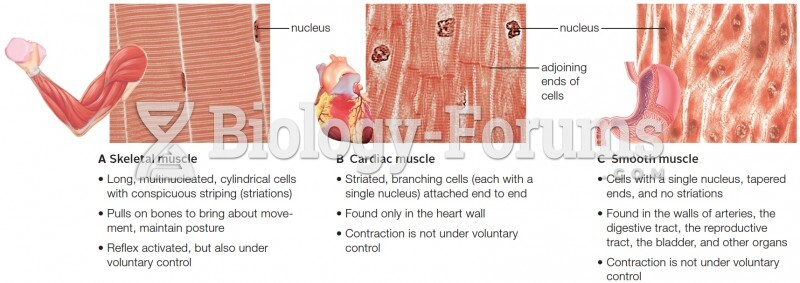|
|
|
Though the United States has largely rejected the metric system, it is used for currency, as in 100 pennies = 1 dollar. Previously, the British currency system was used, with measurements such as 12 pence to the shilling, and 20 shillings to the pound.
After a vasectomy, it takes about 12 ejaculations to clear out sperm that were already beyond the blocked area.
Bacteria have been found alive in a lake buried one half mile under ice in Antarctica.
The average human gut is home to perhaps 500 to 1,000 different species of bacteria.
Astigmatism is the most common vision problem. It may accompany nearsightedness or farsightedness. It is usually caused by an irregularly shaped cornea, but sometimes it is the result of an irregularly shaped lens. Either type can be corrected by eyeglasses, contact lenses, or refractive surgery.






